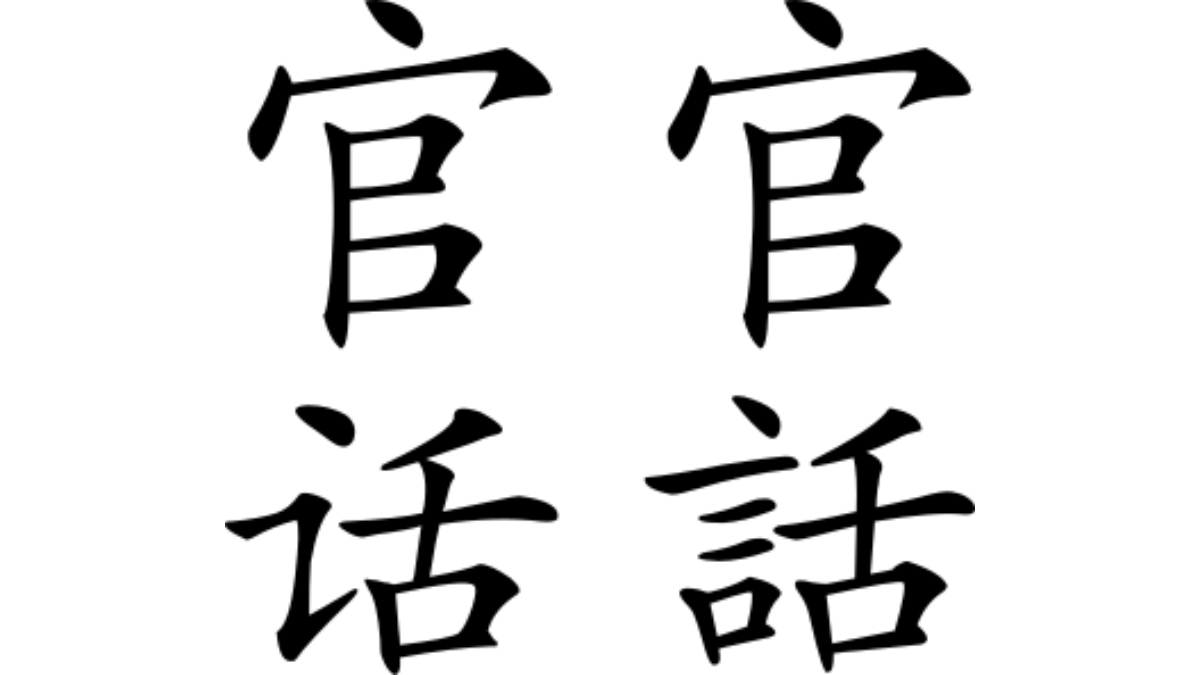Many languages in the world make people break a sweat when they take up the task of trying to learn them. The difficulty of a language is fairly subjective and varies from person to person. Learning a new language that is similar to one’s native language might not be that difficult. Making sense of a language with completely unknown grammar, syntax, shape, and symbols might seem impossible at first. Based on these parameters, can you guess which language is the toughest?
The toughest language to learn is Mandarin Chinese
Mandarin Chinese is generally regarded as the toughest language to learn by the majority of people across the world. This language belongs to the family of Sino-Tibetan languages. It is the official language of the People’s Republic of China and Taiwan.
Mandarin Chinese is known as standard Chinese or ‘Putonghua’, which implies common tongue in the Chinese language. It is also one of the four official languages of Singapore, along with being one of the six official languages of the United States.
Why is Mandarin Chinese tough to Learn?![Mandarin Chinese]()
Some prominent reasons that make Mandarin Chinese such a tough nut to crack for many people across the world are:
- Thousands of Characters
Mandarin Chinese requires you to memorise thousands of characters known as Hanzi. Even after memorising those characters, there exist multiple meanings and various pronunciations of the same character. There are over 50,000 characters in Mandarin Chinese! Though only about 4000 characters are necessary to be considered fully literate in Mandarin Chinese.
- Tonal Nature of Language
Mandarin Chinese relies heavily on the pronounced tone of the characters. It has five tones, out of which four are major and one is neutral. One can imagine the amount of dedication it would take to learn the tonal sound of a word to differentiate it from the same word but with a different tonal sound! The term for it is ‘Homophones’, when a word sounds the same but has multiple meanings.
- Difficult Writing System
Mandarin Chinese has a complex writing system, unlike languages like English, where words are written by simply stringing letters together. This language requires you to add signs to characters in the correct spots to form a meaningful sentence.
Check Out: Top 10 Largest Oil-Producing and Consuming Countries
Time Required to learn Mandarin Chinese
The average time taken to learn Mandarin is 2 to 4 years if studied consistently with no loose ends. The Foreign Service Institute (FSI) states that an English-speaking person requires 2,200 hours of study time to achieve proficiency in Mandarin Chinese with the utmost dedication. It can be measured in HSK or Hanyu Shuiping Kaoshi.
What is HSK?
Hanyu Shuiping Kaoshi is a system of testing the proficiency of the Chinese language spoken and written by non-native Chinese speakers. It is an official examination that ranges from beginners to advanced.
The speaking test has 3 levels: Beginner, Intermediate, and Advanced.
The written test has 6 levels: HSK 1 to HSK 6.
Other Notable Tough Languages to Learn
Apart from Mandarin Chinese, some of the other tough languages to learn are Arabic, Japanese, Korean, Hungarian, and Finnish. All of these languages are labelled as difficult due to their complex grammar structure, which feels difficult to memorize.
The pronunciation is one of the biggest barriers to a language, taking longer than average to learn. For example, languages like English, German, and Dutch share a lot of similar pronunciations and meanings. For example, apple is called apel in Dutch and apfel in German, making it very simple to memorise. This provides a clear reason for the differences that make a language difficult or easy to understand.

Comments
All Comments (0)
Join the conversation